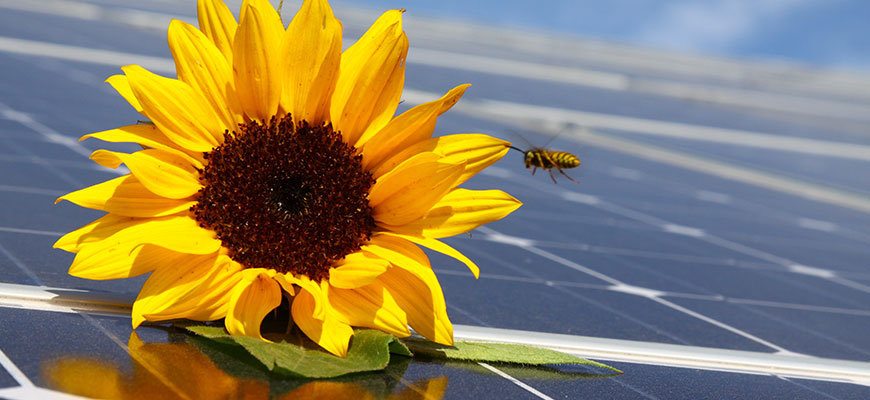
Why renewable solar energy is worthwhile
Renewable energy means more self-determination, less carbon dioxide and real cost reduction into the bargain. Keeping continuously informed makes it easier to decide on this type of system for your own home or business, because there is a lot going on in the world of solar energy.
The current trend is heading purposefully towards a CO2-free world, even though the prognosis is that it could take a good 35 years before we can reduce carbon dioxide emissions to an absolute minimum. However, the tendencies are clear; thousands of people are producing their own electricity by mounting photovoltaic systems on their roofs and directing the unused energy back into circulation.
A newly developed “battery” even makes it possible for producers to use their excess electricity for themselves instead of feeding it back into the grid, one more step towards a decentralised power supply. Studies predict that solar energy will be cheaper than the current conventional methods of power supply in less than a decade.
Germany is one of the forerunners in developing a platform to network several solar energy systems, including power meters, with each other. In this way, the power capacities of each plant will be measured and a calculation simultaneously performed as to whether it is more economical for the owners to act as producers or consumers of electricity. The customer’s own house can be a small power plant, provided that s/he understands the clear advantages.
The german Federal Ministry of Economic Affairs has confidently predicted that this can lead to the acquisition of billions in revenues in just 10 years – also in the Philippines – because photovoltaic systems with batteries are already paying off, even without subsidies. At the same, however, large power companies are investing enormous sums in wind farms to offer organised support to a decentralised solar utopia.
The cards will be reshuffled again with technological advances in the energy sector and the specific character of the model currently remains unclear. The next steps should be exciting; the Hamburg-based company Lichtblick are planning to set up a virtual power plant on a Vietnamese archipelago by creating a network consisting of wind power, solar panels and batteries. The power generated would enable tourism on the archipelago for the first time and help out the local fishing operations.
Even if we cannot do without power stations and power lines in the coming years, decentralised power generation is increasingly on the rise due to technological innovation.


Recent Comments